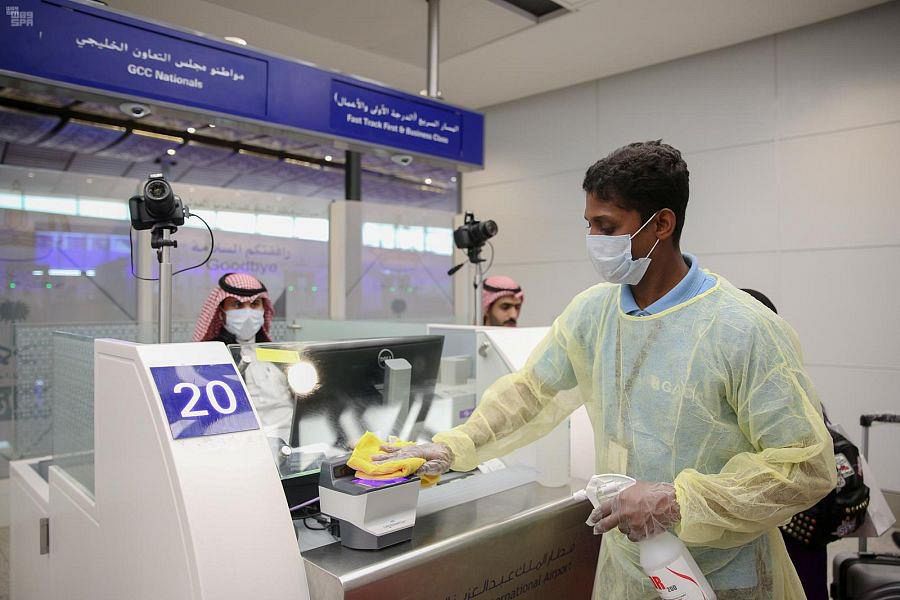
America is polarized and divided and the world must wonder whether or not it can fulfill its supposed role as “leader of the free world.” What exactly that phrase is supposed to mean, I just do not know any more, given the internal fighting that dominates this country.
President Joe Biden, a Democrat, last week gave a partisan speech that effectively blamed all of America’s ills on the Republicans, further widening that divide. He said: “Too much of what’s happening in our country today is not normal. Donald Trump and the MAGA (Make America Great Again) Republicans represent an extremism that threatens the very foundations of our republic.”
The deep divides in the country have drawn in every voting constituency — and Arab Americans are no exception. Although they are concerned by Biden’s failure to live up to his campaign promises, they have joined in the stampede to pillory Trump, attacking him personally and not addressing the issues. Rep. Rashida Tlaib, the daughter of Palestinian immigrants, has used hate politics in an attempt to energize the Arab American, Muslim and progressive communities, including by unleashing a profanity-laced speech attacking Trump hours after she was sworn into office.
Some think the politics of hate started when Trump appeared on the political scene. But the truth is that this divisive political phase began when a former Georgia history professor, Newt Gingrich, entered Congress in 1979 after transforming a Democratic district into a Republican one.
Gingrich rose to become the speaker of the House between 1995 and 1999, during which time he weaponized personality politics to demonize critics, rather than simply focusing on the good or the bad of various issues and programs. Attacking someone personally is usually a sign that the attacker cannot address the issues. So, they call people names. They blame people for negative trends and events. They demean individuals and convey a negative stereotype or sobriquet.
Gingrich launched a wave of hate politics when he took the helm, focusing on Democrats generally and President Bill Clinton in particular. He pushed through so-called welfare reform legislation that weakened American support for the poor. And he drove the passage of a capital gains tax cut that helped the wealthy.
But Gingrich is best remembered for orchestrating the shutdown of the US government several times during his reign and for leading the impeachment of Clinton. It was not that Clinton did not deserve to be impeached, but before the key issues could even be debated, Gingrich turned it into a bloodied battlefield of personality and hate politics.
No one discussed the merits of the issues. They were pushed aside. Instead, the country was divided between those who supported Gingrich, the Republicans and conservatives, and those who supported Clinton, the Democrats and liberals. In the middle were moderates, Democratic and Republican alike, who were befuddled by the angry rhetoric and confrontational environment. But they had no leaders.
Prior to Gingrich’s rise, former President Ronald Reagan — who won the support of both Republicans and Democrats, creating what we now refer to as “Reagan Democrats” — expressed how politics should never besmirch personalities. Speaking in 1985 at the presidential library named for one of his predecessors, John F. Kennedy, who was assassinated in 1963, Reagan praised Kennedy, but then added this important comment, which reflects the old manner of American politics that today is lost in the mire: “Which is not to say I supported John Kennedy when he ran for president. I didn"t. I was for the other fellow. But you know it is true, when the battle’s over and the ground is cooled, well it’s then that you see the opposing general’s valor.”
That kind of political brilliance is no longer here in America. Gingrich set the tone, but many Republicans and Democrats have since fueled the growth of hate politics.
President George W. Bush used anger to bring people together in the days after Al-Qaeda’s 2001 terrorist attack that took the lives of nearly 3,000 people in New York, Washington and in a field in Pennsylvania. Bush declared in no uncertain terms to the leaders of foreign nations, and to the American people themselves: “Over time it’s going to be important for nations to know they will be held accountable for inactivity. You’re either with us or against us in the fight against terror.”
Gingrich set the tone, but many Republicans and Democrats have since fueled the growth of hate politics.
Ray Hanania
And in her 2016 presidential election campaign against Trump, Hillary Clinton, the former first lady and New York senator, vowed to run a “positive campaign.” But her campaign rhetoric fueled anger and was symbolized by her comment attacking those who supported her opponent as “deplorables.”
Candidates use the politics of hate to rally their supporters, but also as a way to avoid a respectful discussion of the issues. The worst part of it is that the hatred is narrow in focus, usually against a single person, and not about the bigger issues that are more important and that might impact people’s lives.
This is one reason why Arab Americans and American Muslims are powerless to change American policies — no matter if those policies are Republican or Democratic — in an attempt to bring justice and fairness not only to their communities in the US, but to change unjust policies affecting the Middle East.
Ray Hanania is an award-winning former Chicago City Hall political reporter and columnist. He can be reached on his personal website at www.Hanania.com. Twitter: @RayHanania










